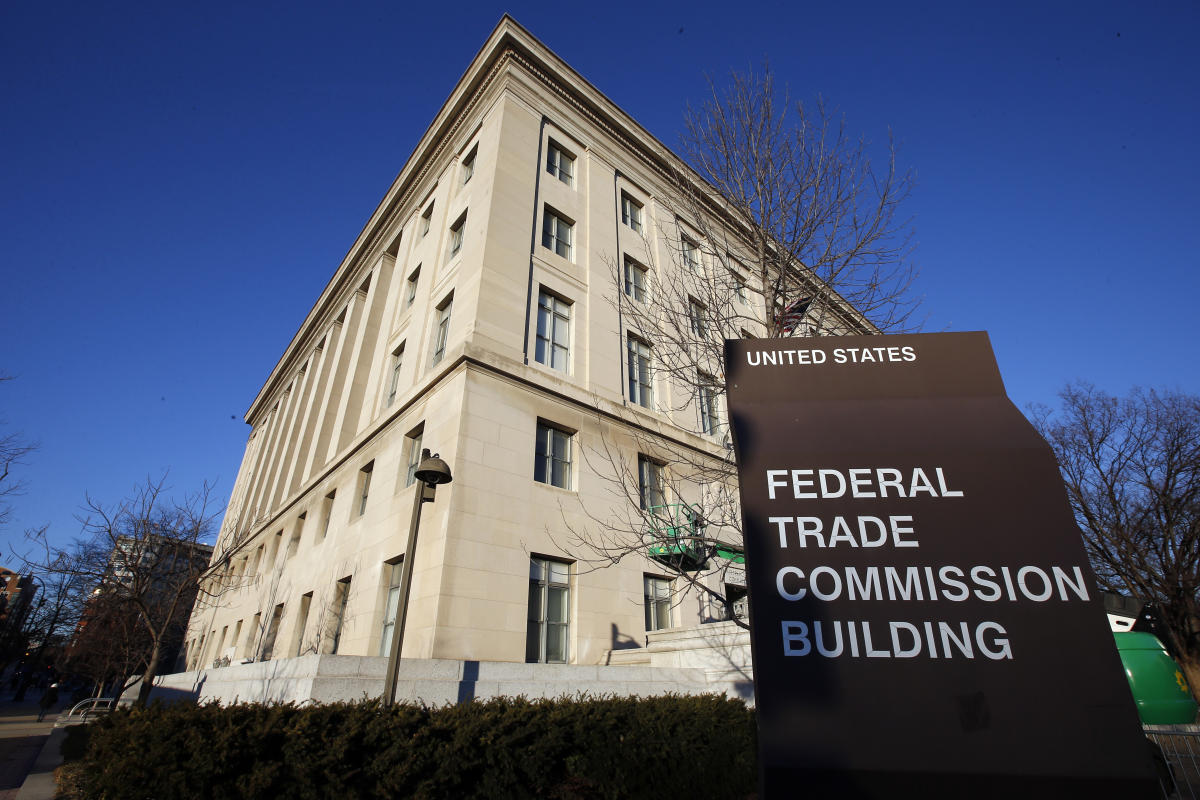Donald Trump’s pick to run the Federal Trade Commission set off a fresh round of questions about what it could mean for the antitrust crackdown on Big Tech.
The short answer: It may be complicated.
Some argued that the appointment of Andrew Ferguson and the exit of current FTC chair Lina Khan, one of President Joe Biden’s most aggressive antitrust enforcers, would significantly decrease government pressure to break up Silicon Valley giants — even if current cases are allowed to continue.
“Let’s be clear: Today is a great day for the tech world and Silicon Valley with Khan finally gone from the FTC,” said Wedbush technology analyst Dan Ives.
Investors appeared to agree. The tech-heavy Nasdaq Composite (^IXIC) jumped about 1.7% as Google parent Alphabet’s (GOOG, GOOGL) shares extended gains to hit a record high, up as much as 4.6%.
But former Assistant US Attorney General Bill Baer, who was in charge of the DOJ’s antitrust division during President Barack Obama’s administration, told Yahoo Finance he doesn’t expect Ferguson to usher in a dramatic change to the FTC’s aggressive enforcement approach.
“The courts have been pretty supportive of the challenges that Lina Khan and Jonathan Kanter at the DOJ have brought in the last three and a half years,” Baer said.
He cited as evidence a decision this week from two courts that ruled that the proposed $24 billion merger between supermarket chains Kroger (KR) and Albertsons (ACI) should not go forward, in a major victory for the FTC.
“So while there may be more leniency, I don’t expect a dramatic change.”
Trump, in announcing his pick, predicted that Ferguson would be “the most America First, and pro-innovation FTC Chair in our Country’s History.”
He also hinted at coming pressure on tech giants by saying that “Andrew has a proven record of standing up to Big Tech censorship, and protecting Freedom of Speech in our Great Country.”
Ferguson — a former law clerk to Supreme Court Justice Clarence Thomas and former solicitor general of Virginia — said on X that he would work to “end Big Tech’s vendetta against competition and free speech” and “make sure that America is the world’s technological leader and the best place for innovators to bring new ideas to life.”
Ferguson’s goals for the FTC reportedly surfaced in a pitch document created to help him persuade the incoming administration to appoint him to the top job, according to Punchbowl News.
In the document obtained by Punchbowl, Ferguson vowed to “stop Lina Khan’s war on mergers” and “focus antitrust enforcement against Big Tech monopolies.”
Such a pitch signals Ferguson may not be averse to the FTC’s continued pursuit of Big Tech antitrust cases.
Those include one already underway against Meta’s (META) alleged illegal monopolization of the personal networking services market brought during Trump’s prior term and another against Amazon (AMZN) brought during Khan’s tenure.
Other FTC investigations of Big Tech companies are intensifying. Khan recently signed off on a request to Microsoft (MSFT) that demands information connected with a long-running antitrust probe of the tech giant, according to Bloomberg.
The investigation is wide-ranging and touches everything from cloud computing to artificial intelligence, according to Bloomberg. Microsoft is a dominant cloud provider and has invested nearly $14 billion in the AI startup OpenAI, creator of ChatGPT.
The DOJ, for its part, also has Big Tech competition cases pending against Google and Apple (AAPL).
Last week Trump nominated former FTC lawyer Gail Slater, an aide to Vice President-elect JD Vance, to lead the Justice Department’s antitrust division, which shares jurisdiction with the FTC for enforcing US competition laws.
Trump said in a statement on his Truth Social platform that under Slater’s leadership the DOJ would continue to prosecute Big Tech to keep dominant firms from using market power to “crack down” on the rights of Americans and “Little Tech.”
It was Trump’s first administration that initially sued Google over antitrust concerns, which led to a ruling by a district court judge in August that the tech giant illegally monopolized the search engine market. The DOJ has asked a judge to consider breaking up the company in a separate phase of the trial that won’t wrap up until 2025.
But Trump has also sent some mixed messages about how far he wants to go to hold tech firms accountable.
While campaigning, he was asked whether he supported a breakup of Google as an antidote to unhealthy competition in the search engine market. Trump suggested that Google’s punishment could be accomplished without forcing it to sell off parts of its empire.
“What you can do without breaking it up is make sure it’s more fair,” Trump said in an Oct. 15 interview. The former president described Google’s search engine as “rigged” and expressed concern that consequences for Google in the case could favor China.
Trump’s first term in office was arguably just as tough for merger and acquisition approvals as Biden’s term, as measured by the number of merger enforcement challenges brought by the Justice Department and the Federal Trade Commission.
Between fiscal years 2017 and 2019, a period that roughly corresponds with Trump’s first three years in office, the DOJ and FTC brought 118 M&A challenges, according to annual reports issued by the agencies.
That was a higher cumulative total than the 108 brought between fiscal years 2021 and 2023, a period that roughly corresponds with Biden’s first three years in office.
“While we can expect robust deregulation” in a new Trump administration, “we shouldn’t necessarily expect this laissez-faire attitude to spill over into the antitrust realm,” said Danny Karon, advisory board member of Loyola University Chicago School of Law’s Institute for Consumer Antitrust Studies.
Alexis Keenan is a legal reporter for Yahoo Finance. Follow Alexis on X @alexiskweed.
Click here for the latest technology news that will impact the stock market
Read the latest financial and business news from Yahoo Finance
